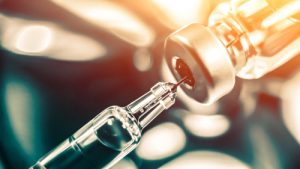
U.S. Rep. Adam Kinzinger (R-IL) recently introduced legislation to increase reimbursements for biosimilar drugs so that more doctors prescribe them and cost-sharing for patients is decreased.
“One of the most consistent issues I hear about from my constituents is the rising cost of prescription drugs, and the impact those costs have on them and their family,” Rep. Kinzinger said on April 23. “We have a duty to ensure patients are receiving the most affordable option available and that our policies encourage competition to drive prices down.”
Rep. Kinzinger joined bill sponsor U.S. Rep. Kurt Schrader (D-OR) to propose the bipartisan Bolstering Innovative Options to Save Immediately on Medicines (BIOSIM) Act, H.R. 2815, which would amend the Social Security Act to provide for a temporary payment increase under the Medicare program for certain biosimilar biological products to encourage their development and use, according to the congressional record bill summary.
“The BIOSIM Act aims to lower prices by increasing the utilization of a more affordable alternative to biologics, called biosimilars,” said Rep. Kinzinger. “As biosimilar utilization goes up, prices for patients will go down.”
Biosimilars approved by the U.S. Food and Drug Administration (FDA) work in the same way, at the same dose with a slightly different substance than an FDA-approved biologic, which is known as the reference product. Biosimilars highly resemble the reference product, utilize the same pathway for treatment, and must undergo rigorous FDA testing standards. They are injected or infused rather than taken in pill form, which generally requires administration in a provider’s office, according to information provided by Rep. Kinzinger’s office.
While the two products are similar, the main difference between them is price; biosimilars are newer, low-cost alternatives to biologics, which are among the most expensive drugs on the market, according to the information, which says that H.R. 2815 would help close this financial gap by temporarily increasing the reimbursement for biosimilar drugs from the average sales price (ASP) of the drug, plus 6 percent to the ASP of the drug plus 8 percent for five years to help increase their usage by doctors.
The Biosimilars Forum, the Biosimilars Council, and the Association for Accessible Medicines support H.R. 2815.



